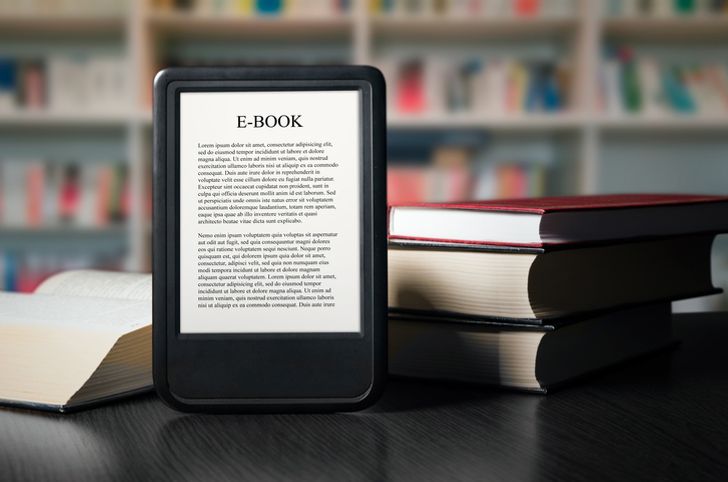
African American literature has always been shaped by innovation, resilience, and the pursuit of new ways to amplify voices in the face of exclusion. From slave narratives passed hand to hand, to the pamphlets of abolitionists, to the independent presses of the Black Arts Movement, Black writers have historically created alternative channels to ensure their stories are heard. In the 21st century, this tradition continues in the digital age. Social media platforms like TikTok, Instagram, and Twitter—alongside self-publishing services—are transforming the way African American authors create, distribute, and connect with readers.
The Shift Toward Digital Platforms
Traditional publishing has long been criticized for systemic inequities. African American authors often face limited access to big contracts, underfunded marketing campaigns, and narrow expectations about what kinds of stories they can tell. The rise of digital tools, however, has begun to level the playing field.
Self-publishing platforms like Amazon Kindle Direct Publishing, Smashwords, and Wattpad allow authors to bypass gatekeepers altogether. At the same time, social media has emerged as a powerful marketing and community-building tool. African American authors are finding in these digital spaces both freedom and visibility, reaching readers across continents without relying solely on traditional publishing houses.
BookTok: TikTok and the Power of Community
Among all platforms, TikTok—particularly the subcommunity known as BookTok—has been a game-changer for literature. On BookTok, millions of users create short, engaging videos recommending books, reacting to emotional endings, or dramatizing their favorite characters. A viral video can catapult an author from obscurity to bestseller lists almost overnight.
For African American authors, BookTok has become a space to highlight diverse voices and stories. Angie Thomas’s The Hate U Give and Tiffany D. Jackson’s young adult novels have found renewed traction through TikTok buzz. Even older works by authors like Octavia Butler have seen sales spikes after trending on the platform.
BookTok’s democratizing power lies in its grassroots nature: readers, not publishers, drive the conversation. This allows African American authors to gain visibility based on resonance with readers rather than marketing budgets.
Instagram and Visual Storytelling
Instagram has also become an important hub for African American literature. Authors use the platform to share snippets of their work, post aesthetic “mood boards” for novels, and engage directly with readers through live Q&As. The visual nature of Instagram makes it ideal for promoting book covers, fan art, and behind-the-scenes glimpses into the writing process.
Bookstagram communities—readers who curate beautiful feeds dedicated to books—are especially influential. They spotlight African American authors who might otherwise be overlooked in mainstream media. For instance, literary influencers have played a role in boosting Black speculative fiction, romance, and poetry, expanding visibility across genres.
Twitter and the Politics of Voice
Twitter has long been a platform where African American writers engage with readers in real time, but it also serves as a powerful space for political and cultural dialogue. Hashtags like #BlackBookTwitter and #PublishingPaidMe have sparked necessary conversations about inequities in publishing.
Through Twitter threads and discussions, African American authors have exposed disparities in book advances, marketing, and opportunities compared to their white peers. These conversations have forced publishers to confront structural issues, while also giving readers insight into the realities of the industry.
The Self-Publishing Revolution
Self-publishing has become a lifeline for many African American writers. Platforms like Kindle Direct Publishing allow authors to release books quickly, retain creative control, and earn higher royalties. Genres such as romance, fantasy, and urban fiction have particularly thrived in self-publishing, where African American writers cultivate loyal readerships without needing traditional validation.
Black-owned publishers like Black Tower Publishers also provide crucial platforms for authors who want both independence and cultural grounding. These presses combine the flexibility of digital publishing with the mission of amplifying African American voices, ensuring works of cultural and historical significance find their audiences.
For many writers, self-publishing is not just a backup option but a deliberate strategy. It allows experimentation, direct communication with fans, and the ability to build a career without waiting for gatekeepers to “approve” their stories.
Global Reach and Diaspora Connections
One of the most profound impacts of digital platforms is their global reach. African American authors are now connecting with readers across Africa, the Caribbean, and Europe, strengthening ties within the African diaspora.
For example, Nnedi Okorafor’s works, which bridge Africanfuturism and African American experiences, circulate widely online, creating global fan bases. Platforms like Wattpad have enabled young African American writers to publish stories that gain traction in Nigeria or South Africa before even reaching U.S. bookstores.
This cross-border circulation highlights the universality of themes in African American literature—struggles for justice, identity, and belonging resonate far beyond American borders.
Challenges in the Digital Space
While the digital age offers unprecedented opportunities, it also comes with challenges:
Oversaturation: With so many authors publishing independently, it can be difficult to stand out without strong marketing or viral moments.
Algorithms and Bias: Social media algorithms don’t always favor diverse voices. African American authors sometimes report that their content receives less visibility compared to mainstream creators.
Economic Inequality: Even with self-publishing, resources such as editing, cover design, and promotion require funding that not all authors can access.
Longevity and Gatekeeping 2.0: Just as traditional publishers once held disproportionate power, digital platforms now control visibility. If TikTok or Amazon changes its algorithms, entire careers can be impacted overnight.
Innovative Responses
African American authors and communities are finding creative ways to navigate these challenges.
Collectives and Collaborations: Many writers form collectives, pooling resources for editing, marketing, and promotion.
Crowdfunding: Platforms like Kickstarter and Patreon allow authors to raise funds directly from fans to support projects.
Hybrid Publishing: Some authors combine self-publishing with partnerships from Black-owned presses, gaining both independence and cultural infrastructure.
Direct Engagement: Email newsletters, podcasts, and virtual book clubs allow authors to build sustainable relationships with readers beyond algorithm-driven platforms.
The Future of African American Literature in the Digital Age
Looking ahead, the digital age promises to continue expanding opportunities for African American authors. The key lies in combining innovation with sustainability. Supporting Black-owned publishers like Black Tower Publishers, amplifying diverse voices on BookTok and Bookstagram, and advocating for equity in publishing remain crucial steps.
Digital platforms also create room for experimentation. Afrofuturism, speculative fiction, queer narratives, and cross-genre works thrive in these spaces, breaking free from the constraints often imposed by traditional publishing.
Most importantly, the digital age reinforces the tradition of African American literature as community-driven. From the slave narratives that circulated through abolitionist networks to today’s viral TikTok recommendations, Black storytelling has always relied on collective engagement. Social media and self-publishing are simply the newest tools in this long history of creative resilience.
Conclusion: A Digital Renaissance
African American literature is experiencing a digital renaissance, fueled by social media, self-publishing, and new platforms that connect writers to global audiences. TikTok, Instagram, and Twitter are not just marketing tools—they are spaces of cultural exchange, activism, and imagination. Self-publishing platforms empower authors to tell their stories on their own terms, while Black-owned publishers and bookstores provide the infrastructure to sustain them.
The challenges are real, but so is the potential. In the digital age, African American literature is not confined by traditional gatekeepers. It is reaching new readers, building global communities, and continuing the tradition of breaking barriers while reimagining what literature can be.
As African American authors embrace these tools, they are not just adapting to the digital world—they are shaping it, ensuring that the future of storytelling is more inclusive, diverse, and vibrant than ever.

